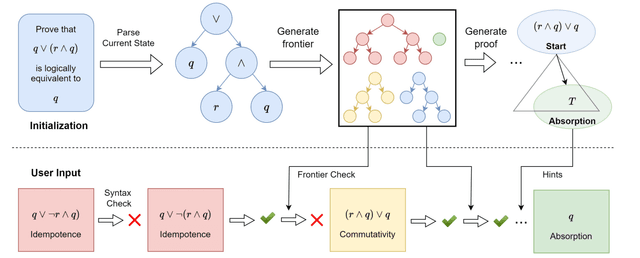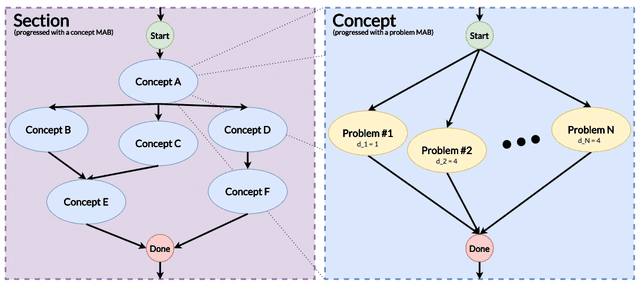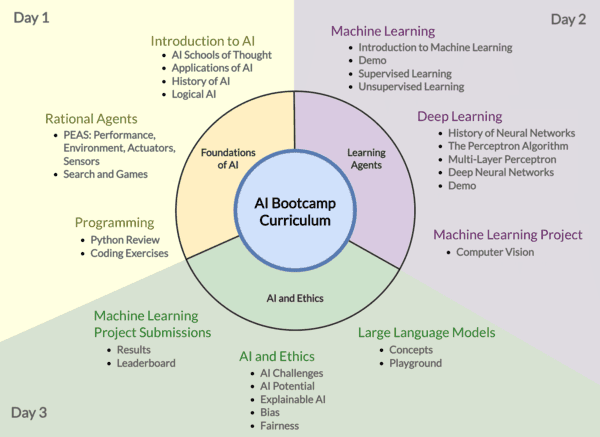
LogicLearner: A Tool for the Guided Practice of Propositional Logic Proofs
The study of propositional logic, fundamental to the theory of computing, is a cornerstone of the undergraduate computer science curriculum. Learning to solve logical proofs requires repeated guided practice, but undergraduate students often lack access to on-demand tutoring in a judgment-free environment. In this work, we highlight the need for guided practice tools in undergraduate mathematics education and outline the desiderata of an effective practice tool. We accordingly develop LogicLearner, a web application for guided logic proof practice. LogicLearner consists of an interface to attempt logic proofs step-by-step and an automated proof solver to generate solutions on the fly, allowing users to request guidance as needed. We pilot LogicLearner as a practice tool in two semesters of an undergraduate discrete mathematics course and receive strongly positive feedback for usability and pedagogical value in student surveys. To the best of our knowledge, LogicLearner is the only learning tool that provides an end-to-end practice environment for logic proofs with immediate, judgment-free feedback.
March 25, 2025

Hierarchical Multi-Armed Bandits for the Concurrent Intelligent Tutoring of Concepts and Problems of Varying Difficulty Levels
Remote education has proliferated in the twenty-first century, yielding rise to intelligent tutoring systems. In particular, research has found multi-armed bandit (MAB) intelligent tutors to have notable abilities in traversing the exploration-exploitation trade-off landscape for student problem recommendations. Prior literature, however, contains a significant lack of open-sourced MAB intelligent tutors, which impedes potential applications of these educational MAB recommendation systems. In this paper, we combine recent literature on MAB intelligent tutoring techniques into an open-sourced and simply deployable hierarchical MAB algorithm, capable of progressing students concurrently through concepts and problems, determining ideal recommended problem difficulties, and assessing latent memory decay. We evaluate our algorithm using simulated groups of 500 students, utilizing Bayesian Knowledge Tracing to estimate students’ content mastery. Results suggest that our algorithm, when turned difficulty-agnostic, significantly boosts student success, and that the further addition of problem-difficulty adaptation notably improves this metric.
August 9, 2024

Teenagers and Artificial Intelligence: Bootcamp Experience and Lessons Learned
Artificial intelligence (AI) stands out as a game-changer in today’s technology landscape. However, the integration of AI education in classroom curricula currently lags behind, leaving teenagers inadequately prepared for an imminent AI-driven future. In this pilot study, we designed a three-day bootcamp offered in the summer of 2023 to a cohort of 60 high school students. The curriculum was delivered in person through animated video content, easy-to-follow slides, interactive playgrounds, and quizzes. These were packaged in the early version of an online learning platform we are developing. Results from the post-bootcamp survey conveyed a 91.4% overall satisfaction. Despite the short bootcamp duration, 88.5% and 71.4% of teenagers responded that they had an improved understanding of AI concepts and programming, respectively. Overall, we found that employing diverse modalities effectively engaged students, and building foundational modules proved beneficial for introducing more complex topics. Furthermore, using Google Colab notebooks for coding assignments proved challenging to most students. Students’ activity on the platform and their answers to quizzes showed proficient engagement and a grasp of the material. Our results strongly highlight the need for compelling and accessible AI education methods for the next generation and the potential for informal learning to fill the gap of providing early AI education to teenagers.
December 4, 2023
